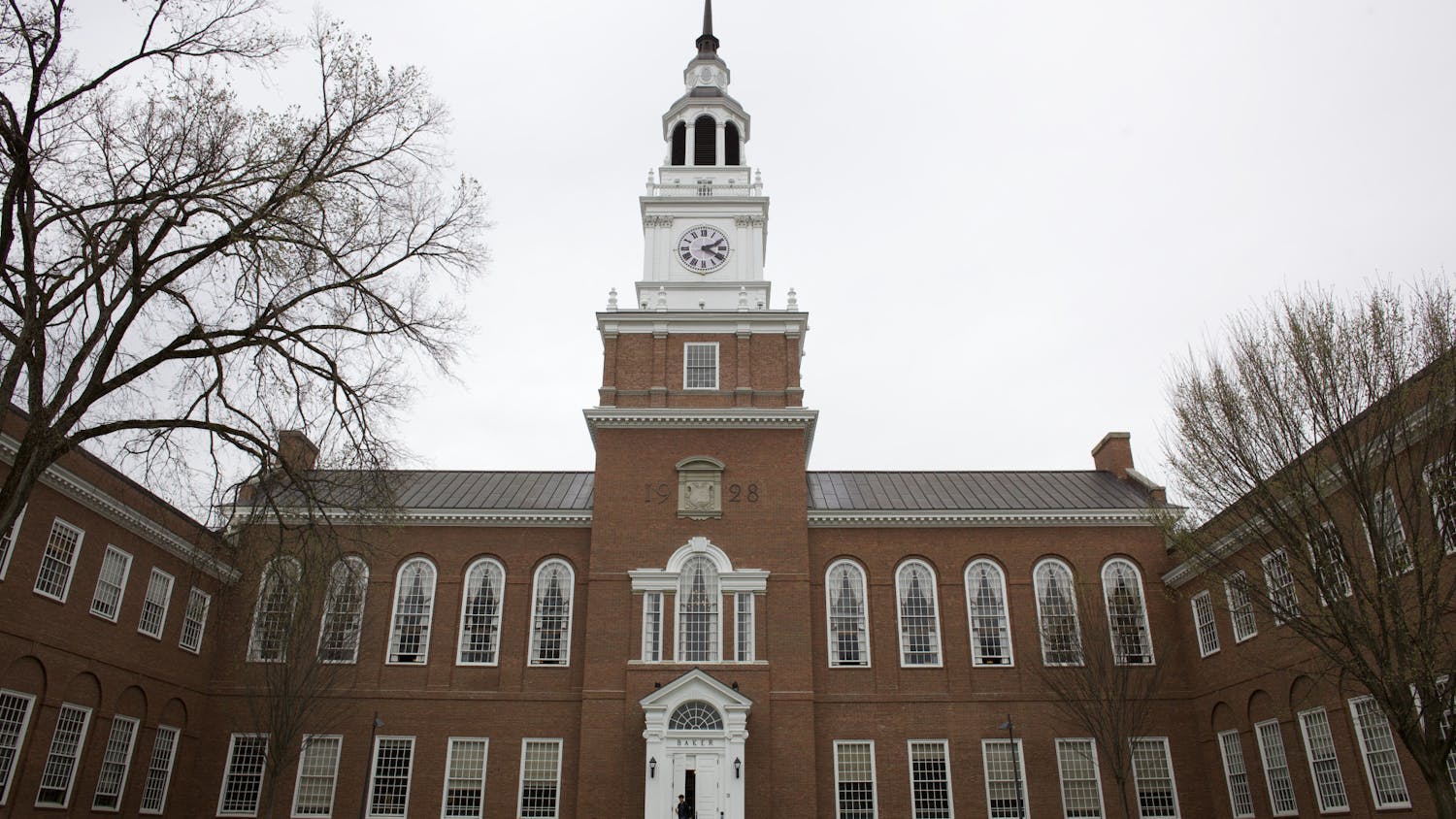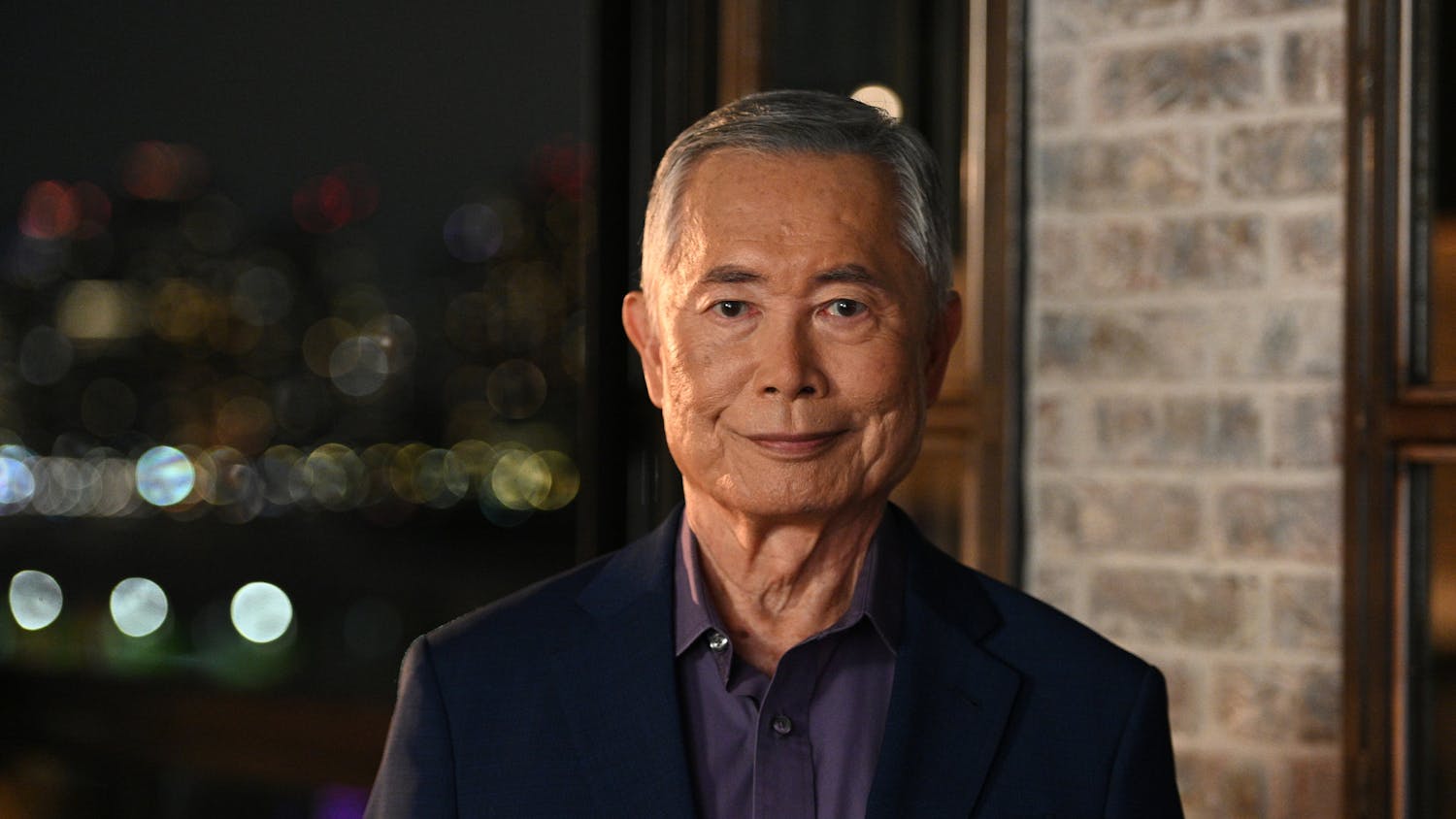Last night, former Secretary of Defense Robert S. McNamara and his recent co-authors of "Argument Without End: In Search of Answers to the Vietnam Tragedy," James Blight and Robert Brigham, spoke in a panel discussion to an engaged crowd in Cook auditorium.
After a brief introduction by moderator Allan Stam of the government department, the three panelists addressed their individual roles in the creation of the new book.
Beginning with an anecdote of Armistice Day in 1918 -- which marked the end of the "war to end all wars" -- McNamara discussed how he devised the "Argument without end" project and how he developed his initial idea.
He explained that the book was dependent on Blight's approach of "critical oral history," which incorporates the memories of participants in history, scholars of historical events and documents testifying to the events that transpired. The book was also dependent on the cooperation of all parties involved.
As Blight put it later, "There was discontent after 30 years of us talking to ourselves and the Vietnamese talking to themselves."
McNamara said once the U.S. and Vietnamese participants in the study were actually at work developing their history, both sides almost quit on multiple occasions.
In fact, the front cover of "Argument without end" features the former foreign minister of Vietnam with his fist raised about to punch McNamara during their first round of meetings.
He said at the end of the many ensuing sessions, both the Vietnamese and the American participants learned about the misperceptions they had held during the war. Together, they found occasions when they could have ended the conflict had they had enhanced communication and been more empathetic towards their adversaries.
Blight, who followed McNamara, used a conversational tone as he explained his side of the process, emphasizing the worth of using scholars, memories and documents in combination.
He also addressed the changes he observed over the course of the project as the former policy-makers realized that they were partially at fault for the atrocities of the war and that there were mutual misperceptions.
Brigham -- the historian -- addressed the project from his standpoint, explaining that he strove to draw lessons from the past.
"Every minute of every day, we have added to history," he said.
As soon as the floor was opened up for questions, it became obvious to the numerous students in the audience that the issues discussed were weightier than the panelists made them out to be as they jovially described their conversations and investigations.
One community member approached the microphone set up for questioners and told McNamara that he had spent time in jail after protesting the Vietnam War. He told McNamara that one of his closest friends from childhood died in 1967. He wondered when McNamara had first understood the lessons that he revealed he had learned in his 1995 book "In Retrospect: The Tragedy and Lessons of Vietnam."
"And why didn't you join us in the streets when you found out?" the man -- who appeared shaken -- asked.
Despite McNamara's widely publicized acknowledgement of fault, he insisted that "Neither you nor he was in the majority at the time," explaining that the mass of Americans until late 1967 were in favor of U.S. policy towards the war.
"Our nation should be democratically governed," McNamara said of his 1960s decisions to escalate. He also claimed that he did not fully understand the lessons he sets out in his books until the early 1990s.
Adjunct Staff Engineer Heathcote Russell also said he had spent time in jail after demonstrating against Johnson in 1967.
"I thank you, I respect you," Russell told McNamara, having read his recent books. But he observed that America is not learning from its lessons, and asked what the country can do as it moves forward.
McNamara said the United States has to "give up some of its sovereignty" and integrate into the world community, working through the United Nations.
In answer to this and other questions, McNamara said America should abandon its ties to nuclear weapons, endorse an international criminal justice system and let go of its U.N. Security Council veto power.



